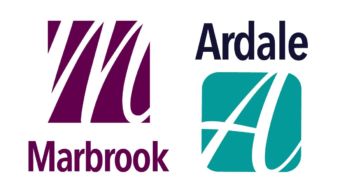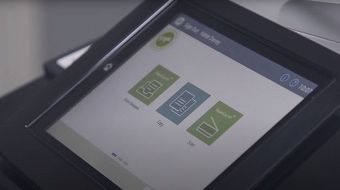In today's rapidly evolving business landscape, sustainability is no longer an optional checkbox - it's a fundamental requirement for success. With the increasing awareness of environmental issues and the growing demand for eco-friendly practices, both throughout the supply chain and among customers and end users. As businesses seek ways to reduce their carbon footprint, print represents an opportunity to make a real impact!
In this post, we explore how Managed Print Services (MPS) are helping businesses to minimise waste, conserve resources, reduce environmental impact and contribute to a more sustainable future.
Optimised Printing Infrastructure
One of the primary ways MPS reduces environmental impact is by optimising your printing infrastructure. MPS providers like Vision conduct a comprehensive assessment of your print environment to identify inefficiencies in terms of device utilisation, siting of devices and much more in order to develop and implement tailored solutions.
Paper and Waste Reduction
Excessive paper consumption not only contributes to deforestation but also leads to significant waste generation. MPS addresses this issue in a number of ways; by implementing print policies that encourage responsible printing behaviour, as well as introducing solutions such as "follow me" print which enables users to print from any device, regardless of their location, leading to improved user experience and fewer documents left uncollected at devices.
Offsetting
Complementary solutions such as PrintReleaf enable organisations working towards a carbon neutral business to offset the carbon emissions associated with their paper-based footprint. To date, Vision customers have offset 62,218,911 pages of paper by reforesting 7,467 trees via PrintReleaf’s Verra certified Carbon Offsets.
Sustainable Supplies Management
MPS providers play a crucial role in managing supplies such as ink and toner cartridges for their clients in order to minimise disruption and maintain business continuity. Proactive monitoring systems such as Vision's Remote Fleet Management platform, which utilises AI and predictive analytics to monitor when consumables are running low and dispatch replacements before they run out, can help to eliminate the accumulation of excess stock and even help with the recycling of old materials.
Energy Efficiency Measures
Printers and multifunction devices are notorious for their energy consumption. However, as energy consumption is a key element of any print audit, MPS providers can offer guidance on the most energy efficient devices to reduce energy consumption, help the environment and lower overheads associated with print. When coupled with a geographical review of an organisation's print environment, this can lead to truly optimised energy usage that can lower their carbon emissions and contribute to a sustainable future.
Digital Transformation and Document Management
MPS providers such as Vision also aid businesses in their digital transformation journey, reducing reliance on paper-based processes. By implementing document management systems such as FileHound, organisations can seamlessly transition to digital storage and collaboration platforms.
Managed Print Services offer far-reaching benefits beyond simply streamlining your print infrastructure and reducing costs. By partnering with an MPS provider, businesses can significantly reduce their environmental impact by optimising their print infrastructure, reducing paper and waste, managing supplies more effectively, implementing energy-efficient measures, and embracing digital transformation. The cumulative effect of these initiatives leads to reduced carbon emissions, conservation of resources, and a more sustainable approach to printing and document management.


